Connecting People

World Singles Networks is a dating and singles community designed to help you make valuable connections with people from all over the world. World Singles Networks was launched in 2001 and caters to numerous different ethnicities.
I met up with Sean Corfield, Senior Software Architect, to chat about how they use Clojure at World Singles Networks and about his experiences within the Clojure open source community.
Andrew: Could you give us a little background on World Singles Networks?
Sean: The two founders had a vision to put together ethnic niche dating, and it’s one of those little companies that got started in the traditional Silicon Valley way of two guys in their garage. One of the founders essentially taught himself programming to build the first version of the platform and it grew from there into lot of different brands, ending up with something close to 100 different dating sites.
Andrew: How did you get started at World Singles Networks?
Sean: The dating business is fairly competitive. In 2009 World Singles Networks decided to build the next generation version of the platform and move towards a modern maintainable codebase. They brought in a couple of my friends to rebuild the system and I got hired through that. We went through a greenfield rewrite of the entire system, looking at building the better next generation of dating sites. Now I have been there longer than I have worked anywhere else in my life… which is kind of fun.
Tech history
Andrew: What’s the tech story?
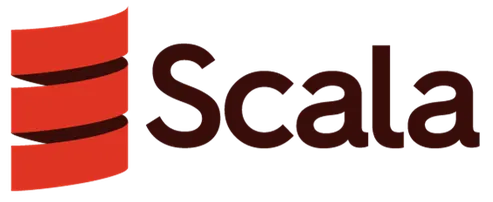
Sean: When I got started, they were a ColdFusion shop and we picked up frameworks and modern OO / MVC / DI frameworks to rebuild the system as an extensible, customisable platform for that. In dating, you’ve got the search engine which is core to what you work on. We had a process that took changes in profiles - we have millions of members constantly updating their profiles - and turned it into data that the search engine could use. That needed to run 24/7.
Scala had XML literals, which is what the search engine needed, it had a good concurrency story - or so I thought - and so I decided to build a version of this process in Scala. It was back in the 2.7 days and we went through the 2.8 migration, so there were binary compatibility issues with every milestone build, where the entire build tool chain had to be updated.
It was lovely code when we got it up and running, nice and clear, with a good concurrency model. Memory leaks with the actor model meant that the process had to be restarted several times a week, but it gave us everything that we wanted.
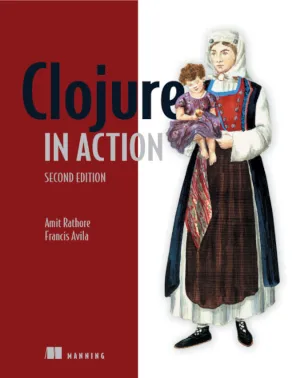
In 2010 I got interested in Clojure and Amit Rathore - the author of Clojure in Action - was running a Clojure workshop about 30 miles from me. I thought Clojure would be a very fun thing to go and learn. I went to the workshop and I was blown away that here was a modern LISP running on the JVM. I went back to work and rebuilt our Scala process in Clojure to see how it compared. I got the first version running very quickly in a lot less code. It didn’t run as fast, but it didn’t have any memory leaks and kept running 24/7 for months.
Andrew: Would you say it had a better concurrency model than the Scala model?
Sean: At the time, yes. I was using the actor model where you send the message and get the actor to do its thing. Clojure has immutable data structures and a very fluid set of primitives for that. For my first attempt, I put pmap into some code and was able to get it to run with so much concurrency that it took down the search engines. We were able to ramp up another process to send 3.5 million HTML emails a day from this system, as well as doing all the XML generation and the database action. The capacity was spectacular and we had to stand up dedicated instances of search engines to deal with the volume. Scala was very precise and capable, but it wasn’t fun. Clojure is solid programming and engineering whilst still feeling fun.
Team Adoption ***Andrew: How did the rest of the team start using
Clojure?***
Sean: My team mates were CFML (ColdFusion Markup Language) developers. I started to introduce Clojure to them and they thought it was pretty cool and were happy to learn it. We used it initially as a library language. As we needed to touch the code, we would rewrite it in Clojure. We had an i18n internationalisation library wrapped around a MySQL database that was all done in Clojure. We started to switch our email template generation over, initially using Enlive, and then Selmer where we had HTML style templates for emails.
Gradually Clojure began to infiltrate our codebase. Our codebase kept growing in Clojure and gradually shrinking in CFML. In 2014/15, Clojure became our primary language for all new work. It’s allowed us to streamline our deployment process and move to a microservice style architecture. The CFML servers’ footprints are pretty large, even with the free open source engine that we are using, compared to being able to roll out Clojure jar files that are 20MB or 30MB, so that’s been very nice.
Andrew: How would you say Clojure compares to CFML now that you’ve done the switch?
Sean: With Clojure you get immutable data structures at the core. It is designed to be a simple, elegant language and everything else is built on it as libraries, whereas CFML is designed to be a sort of Swiss army knife of features and you don’t get to pick and mix. Accordingly, what’s happened is you don’t get the huge open source ecosystem that Clojure gives you access to. So there isn’t the concept of a standard library. Either functions are built into CFML or they’re not. There hasn’t been the drive to create an open source ecosystem around it, which I think is one of Clojure’s huge strengths.
Tech Community
Andrew: What are your thoughts on the Clojure community?
Sean: The Clojure community is very helpful, very friendly for beginners, very encouraging and - for such a massive community - it manages to be generally very polite in tone, and that comes down from the core team themselves and Rich Hickey, who’s made it very clear that “he wants respectful discussions” - and trolls really aren’t tolerated. I also think the Clojure community has a much more advanced level of thinking about problems.
Andrew: Would you put that down to the nature of functional programming?
Sean: I think it is. It’s the nature of functional programming and also to some extent the nature of problems that people solve. People come to Clojure who have some very large scale, very complicated problems to solve. They’re already dealing with some very advanced problem spaces. And you get people from all walks of life because it’s not just a web language. People are doing massive data processing, numerical analysis, cryptocurrency, e-commerce, all sorts of things. Web development is still one of the number one things that Clojure is used for, but it’s a much broader community and so the level of discourse tends to be much more advanced.
Current Tech Stack
Andrew: Could you give us a brief breakdown of the technical stack within World Singles Networks?
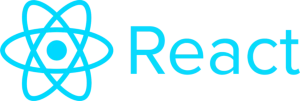
Sean: For what is now the 3rd generation of the platform, which we’ve rolled out to about 40 of our sites so far, that is a JavaScript React JS single page app on the front with mostly Compojure and Ring on the backend. We have one app that uses Bidi and Ring. We mostly talk to MySQL, we use Percona as the variant there, so a very heavy SQL based application. We have several apps that are very heavy users of core.async.

We have been using Lacinia for GraphQL in one of the new applications we’re rolling out. But it’s pretty stock technology. We don’t have message hubs or streams or exotic databases. We use Redis for some stuff. We are currently using MongoDB and I’ve been the maintainer of CongoMongo for quite a while, but we are consolidating most of that onto MySQL. That’s been my current work for the last few months, looking at where we were using MongoDB and figuring out how to get it pulled back into MySQL.
Andrew: You mentioned React and JavaScript. Do you think you’ll move to ClojureScript for any of that?
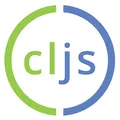
Sean: We built some internal proof of concept apps with ClojureScript about 3 ½ years ago and we did like it, but the tooling was pretty rough at the time and it was changing very fast so we decided to stick with JavaScript. It’s easier to hire JavaScript developers, easier to understand and optimize the JavaScript experience on the frontend and that evolved pretty fast on it’s own. Just targeting that layer on its own has been pretty hard work and we’ve got some good guys working on that.
Would we use ClojureScript in the future? There’s certainly interest in it within the company and the tooling has advanced dramatically. The guys we’ve got doing React JS work have built things in a functional style using Immutable JS, Redux and various other things. They like it. One of them is active in his local Clojure group anyway and the other is quite fascinated by Clojure everywhere else within the company so it’s a possibility in the future.
Open Source
Andrew: Coming to open source. You’ve been an active supporter of open source projects and you’ve become a maintainer of quite a few projects over the years. Which open source projects would you say you are really actively involved in at the moment and are there any that hold a special place for you?

Sean: The reason I tend to become a code maintainer on open source projects is because I want to use them in my day to day work and they either don’t have an active maintainer or I want to get involved enough to become a code maintainer.
The first Clojure library that I picked up was essentially “clojure.java.jdbc”. I picked it up in the 1.3 days because clojure.contrib.sql wasn’t being actively maintained at the time and in the switch from 1.2 to 1.3, where contrib was broken up, they needed a new maintainer. I’d been jumping up and down on the mailing list saying I’d really like to use a modern equivalent of contrib SQL and was kind of shocked that no one seemed to be doing SQL database work in Clojure. They were all using the more exotic databases or just data processing. Finally the core team agreed to let me become the maintainer, it became clojure.java.jdbc and I’ve been maintaining that now for seven years. It was more of a wrapper around the Java layer and has since evolved into what I would like to think is a much more Clojure-y style API. It’s pretty locked down now and solid, and I really do enjoy working on it, partly because it’s taught me a lot about different databases. The differences between the databases is often very frustrating and to run on H2, HSQL, SQLite, MySQL, Postgres, Oracle and some other databases, some of which I’d never heard of, all of them with their own peculiarities around whether or not they deal with auto-generated keys when you’re inserting data, how they return result sets, what you can do with those result sets, means that the library has to do a lot of low level tweaking and poking at all of this to make it work and that’s always fun.
Since then, I’ve also got involved with “CongoMongo”, “clj-time”, “core.cache” and “core.memoize”. The reason again for getting involved in each of these projects is because we use them very heavily at work and the maintainers had moved on so someone needed to step up and take on the issues in the backlog and get something done with those. I took over “tools.cli” for the same reason. We were using it fairly extensively in a lot of our background and cron job processes.
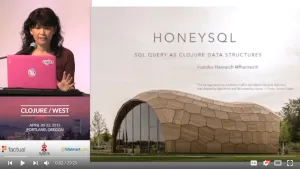
I’ve just taken over as the maintainer on HoneySQL because, again, we use it very heavily. In fact, my former colleague, “Fumiko Hanreich, gave a great talk at Clojure/West in 2015” on the use of that. (Here is “Fumiko Hanreich’s pre-conference interview”). So that’s the latest one that I’m now in charge of. I like open source. I’ve been doing open source maintenance since the very early 90’s. I worked on some of the early C++ libraries and pretty much every community I’ve been in I’ve tried to contribute to open source. I think it’s a very important way to support and grow a community.
Hiring
Andrew: What are your thoughts on hiring Clojure devs?
Sean: Hiring good developers is always difficult. We’re a fully remote company. Everyone works from home so our options for hiring have been much broader, but recently, it has been harder to find people. There are a lot of people who want to do Clojure and may have good skills in other tech, but we also need people who can come in on day one and just ramp up with how the system works without having to also learn the technology. There is a small group of fairly senior developers now in Clojure who have been around since the beginning days and they can be very picky about who they work for and what jobs they do, so it can be very difficult as a small company to hire those very, very senior people. So, as a small company, you have to be able to find people with aptitude and who are going to be able to pick up everything else about your environment very quickly.
We did find that once we started advertising that we were looking for Clojure developers, we got a lot of applicants who were smart and had experience in a lot of tech and wanted to do Clojure. If you’re a company that has the luxury of being able to offer training or mentoring so that people can come up to speed on Clojure within the company, then that really does work in your favor. Otherwise, hiring senior engineers is as hard for Clojure as it is for anything else.
Andrew: That seems to be a recurring theme - having smart people that are really keen to learn Clojure, but also having the ability to allow them the time to up-skill.
Sean: Yeah, we’ve been really lucky. The people we’ve brought on have been just amazing people to have on the team. When we first cross trained from CFML, there was a lot of enthusiasm around that. Fumiko has gone on to work for another Clojure company and really enjoys the tech. We have Kevin Downey - hiredman as he’s known on most things - and he came up to speed straight away and is building amazing systems for us. It’s a very exciting, fast moving kind of environment and people seem very keen to come into Clojure and get involved with interesting problems to solve.





